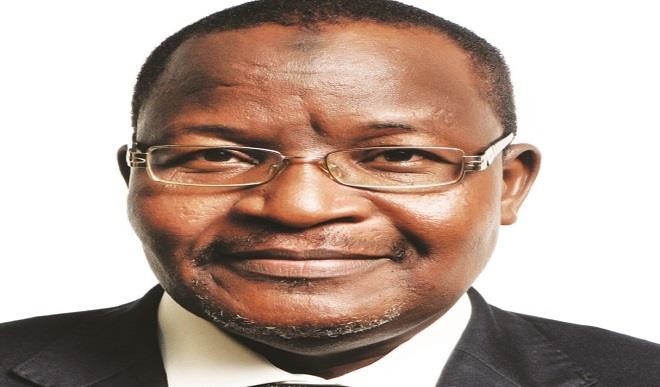NCC boss lists ways to sustain tempo of telecoms development
How the current growth rate of the telecom sector can be sustained is the focus of Prof. Umar Garba Danbatta, the Executive Vice Chairman and CEO of the Nigerian Communications Commission (NCC). He outlined his vision for the sector in the October-December 2015 edition of NCC in-house journal, The Communicator. The Nigerian telecoms sector has […]


How the current growth rate of the telecom sector can be sustained is the focus of Prof. Umar Garba Danbatta, the Executive Vice Chairman and CEO of the Nigerian Communications Commission (NCC).
He outlined his vision for the sector in the October-December 2015 edition of NCC in-house journal, The Communicator.
The Nigerian telecoms sector has indeed witnessed astronomical growth in telephony access and data penetration. Today, active telephone lines are well over 150 million with close to 100 million Nigerians having access to the Internet. The country’s teledensity is put at 108 per cent. Investment in the sector is put at over $32 billion.
The impact of telecoms sector on other sectors such as banking, e-commerce, agriculture, education, oil and gas and so on and the volume of jobs the sector is creating has been described as unprecedented.
As such expanding and sustaining these notable achievements appear to be the task ahead of the new Executive Vice Chairman (EVC) of the Nigerian Communications, Prof Umar Danbatta, who promised to hit the ground running as fast as possible.
Danbatta, a Professor of Electrical Engineering, has highlighted key priority areas under his leadership at the NCC. In an interview with The Communicator, Danbatta listed focus areas to include reviving the moribund Code Division Multiple Access (CDMA) sub-Sector; run an open access model for broadband deployment; encourage operator investment; improve on quality of services and as expected fine ‘errant’ operators among others.
Reviving the CDMA sub-Sector
The CDMA sub-Sector in Nigeria can be said to be left with nothing, though the only living operator, Visafone is left with less than two million subscribers. The sector has continued to maintain downward profile in the last five years. But in his vision, Danbatta admitted that fixed networks have been neglected, stressing that nobody is interested in them despite the promises they hold. According to him, operators are more interested in providing mobile services and the subscriber base by operator attests to this, with MTN having over 60 million subscribers, Glo and Airtel having over 30 million, Etisalat has 20 million subscribers and then Visafone about 2.5 million subscribers.
“If we can deliberately introduce incentives to any operator to come in and roll out fixed telecoms services we can do it. The Commission is open to negotiations on how this could be done.
“We intend to convince the government to key into this important initiative of the Commission. Through this medium I send a message to operators who will be willing to buy into this important idea of availing themselves the opportunity to get the incentives that we intend to put in place in order to revive fixed telephony services.”, he stated.
Tackling the Issue of QoS
Admitting that telephone services are at the level they ought to be, Danbatta said the QoS is also characterised by key performance indicators (KPIs) which we know are defined by terminologies associated with drop calls, inability to get calls through and vice versa; when someone calls you and he or she is not able to get through to you. And there are other technical issues that are not conversant to ordinary Nigerians all of which we must tackle to improve QoS.
According to him, the non-technical issues are the ones that Nigerians are more conversant with; the inability to have Right of Way to access sites and locations for the deployment of infrastructure like fibre networks. He noted that there are the issue of multiple taxation at the state and federal levels, and even local government and ward levels; and next to these two is the vandalisation of telecoms infrastructure.
“I even went as far as in one of the management meetings to put in place an improvement of QoS initiative in form of a taskforce working presently in tandem with other departments of the Commission, all to ensure that the QoS improves. We have given them a timeline to report back to the management for us to be able to verify if the measures we’re putting in place are yielding the desired result and if not so, what we need to do to change our strategy. But the most important message that should go out to the public is that something is deliberately being done to improve QoS’, Danbatta stated.
Still on poor QoS, the EVC admitted that capacity is definitely a problem. Capacity, According to him, in terms of ability to communicate over the networks. He said the commission will look at the technical factors even as “we’re convinced that if we’re looking for remarkable improvement in QoS, then we must roll out broadband services. The infraCos have a key role here; two have already been licensed; Lagos and the North central, Lagos because it is a strategic location and North Central because that is where the seat of power is.”
He assured that as soon as other InfraCos are licensed, there will be remarkable improvement in QoS He explaine that the process involves fibre going into the metropolitan cities like Port Harcourt, Enugu, Lagos, Kano, Kaduna, among others. Presently he said a committee has been set up to look at, as a matter of urgency, the issue of infraCo licensing for the five other zones even as we’re making conscious and deliberate attempt to ensure that those already licensed roll out broadband services.
